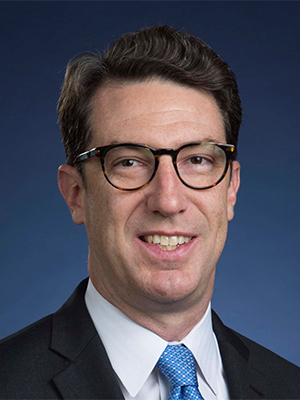
The new Equity Analytics elective at Michigan University’s Ross School of Business is believed to be the first business school course that focuses specifically on the equity aspect of DEI and the data tools to help reduce disparity. (Courtesy photo)
On her application to University of Michigan’s Ross School of Business, Jill Dannis, MBA ‘23, wrote that she wanted to “develop as a data-driven leader focused on impact.” She worked in DEI (Diversity, Equity and Inclusion) in the past, most notably as a senior specialist for Academy Gold, the DEI initiative of the Academy of Motion Picture and Sciences. But she was looking for skills that could help her create tangible change.
So when she read the course description for a brand new elective called Equity Analytics, she signed up.

Jill Dannis, MBA
“What caught my eye primarily was the difference between equity and representation. A lot of the DEI work that I’ve done before, I feel like I was missing some of the data skills to really dig into equity in terms of differential treatment and disparate impact,” Dannis tells P&Q.
“So seeing that that was the lens that (Professor Rider) was using made me want to take an 8 a.m. class in the Michigan winter after living in California all my life. And I’ve definitely come away with a lot of those skills.”
NEW ELECTIVE FOR UNDERGRAD AND MBAs
Equity Analytics is a new elective at Michigan Ross developed and taught by Chris Rider, the Thomas C. Kinnear Professor and associate professor of strategy. He offered the class for the first time this winter to both undergrad and MBA students, and it is believed to be the first such course that focuses specifically on the equity aspect of DEI. Students learn not only how to identify inequity in markets, organizations and industries, but to analyze plausible causes and design interventions to reduce them.
Rider, who is also an organizational sociologist, has been working in racial disparity and silo inequality for several years. His research looks into the existence and causes of inequality and into the mechanisms developed to address them. For example, in 2016, he co-authored a study into the NFL’s Rooney Rule that requires NFL owners to interview at least one minority candidate in their search for head coaches. The idea was that more diversity in the hiring pool would lead to more diversity in the coaching ranks, even without a minority hiring requirement. Rider’s analytics research found racial disparity in assistant coach promotion rates was unaffected by the Rooney Rule.
While the study garnered a lot of press attention, it occurred to Rider that similar disparities in other professions–such as software engineering, for example–were likely as rampant but would never get the attention as in NFL coaching. He also realized that while people wanted to understand disparity, they were looking for tools that could be shown to help reduce it.
“It’s only been recently that business students have really taken an interest in my research. There was always some sort of polite interest, but I think that broadly–if we can say anything about our student population or probably society at large–is we’ve become much more attuned to societal inequality, racial disparity, and other differences in gender, sexual orientation and immigrant status,” Rider tells Poets&Quants. “It’s really exciting to have a group of students who really want to study how to analyze these issues to not just document gaps, but also to close them.”
TELLING THE STORY BEHIND THE NUMBERS
Mikayla Moon, BBA ‘22, is going into asset management after graduation, and hopes to work in the DEI space. She thought the elective would help her identify the story the data is telling.

Mikayla Moon, BBA
“We learned about the data generating process, which is the idea that you have to go behind the numbers and look more for the root causes of what’s causing the inequities to exist,” Moon tells P&Q.
For example, one of the course’s most impactful guest speakers for Moon was Pam Coukos, co-founder and CEO of Working IDEAL, a consulting firm that advises organizations on DEI issues. Coukos shared her firm’s work on the Reel Equity campaign, highlighting gender pay inequities for people behind the camera in the film industry. Their study used data analysis and qualitative analytics to identify gender segregation and stereotyping in female-dominated crafts that led to significant gaps in pay than in male-dominated crafts. It also led to several recommendations for the industry to address the inequity.
“She really painted a picture of why the pay disparity and unequal opportunities existed,” Moon says. “Looking beyond the numbers to really analyze why something is happening can be applied in many different settings. Using qualitative data techniques and hearing stories to give life to these inequities, I think is really important.”
AN ‘ALL-STAR’ CAST OF GUEST SPEAKERS
The invited guest speakers are an important feature of the course. As Rider was developing the curriculum, he Tweeted a call for industry professionals interested in coming into the classroom. He was impressed by the reaction, and found what he calls an “all star cast” of people working in equity analytics at companies such as Instagram and Google.
“There are so many people who want to be engaged in this topic,” Rider says.

Christopher Rider
Speakers included Melissa Thomas-Hunt, former head of Global Diversity and Belonging for Airbnb; and Cyrus Mehri, the civil rights attorney and Rooney Rule innovator. To prepare for Mehri’s visit, students developed proposals for ways to revise the Rooney Rule. And, in a stroke of scheduling serendipity Rider couldn’t have foreseen, Brian Flores’ lawsuit against the NFL for alleged racism in its hiring practices hit the news days before Mehri’s arrival on campus, highlighting the relevance of their discussion.
“Chris has developed an innovative curriculum that is designed to teach practical skills companies and organizations need to understand the state of equity and inclusion in their workplaces–and to better align their work to key values of fairness and dignity,” Coukos says. “I was so pleased to be invited to join and share some ideas about how to apply what they are learning to create meaningful change.”
WHY THE ANALYTICS MATTERS
More and more companies are already working with equity analytics, though they might call it something different. Students trained in its techniques might be hired as equity managers, equity analysts, or as part of the HR team. Beyond qualifying students for specific job titles, equity analytics techniques can also be applied to create fairer supply chains, investing strategies, and lending and borrowing policies.
Eliya Imtiaz, BBA ‘23, transferred to Ross School of Business in her sophomore year. She is looking for a career that will have impact in the equity space, and plans to eventually go into public interest law. Equity analytics is her favorite elective that she’s taken so far.
“I think this is something that a lot of business students should be encouraged to take because there’s a misconception that you can’t do good in your career or delve into subjects related to ethics and disparity in the business school. I’ve heard a lot of students think that they have to bite the bullet and go down paths that don’t interact with these topics,” she tells P&Q. “I think showing that these careers are present and that a lot of very big companies are looking into these issues can emphasize that there are other routes available to business students.”
From the company’s perspective, leaders care about the people they work with, and they want their employees to be happy and productive. While it’s not necessarily the major factor in creating fair workplaces, there are also bottom-line implications of equity work. “When we think an organization is fair, we’re likely to be more productive. We contribute more for the same inducements,” Rider says.
From the employee’s perspective, who you work for says something about your values and your value to others. “I also think that the students we teach at Michigan Ross are more and more identifying with organizations in ways that it’s not just their job. It’s a key part of their individual identity,” Rider says. “And I think fairness is a universally held value, even if we have different notions of fairness.”
PREPARING STUDENTS FOR TOUGH CONVERSATIONS
In any analytics course, the data interpretation and understanding is an integral piece. But students don’t have to be statistics whizzes or Python experts to succeed, Rider says.

Ashley Tran, MBA
“We teach the analytics in a way that is accessible. Frankly, I’m of the mind that simpler, clearer statistics are more powerful than complex ones for the purpose of being more persuasive,” he says.
Ashley Tran, MBA/MA ‘23, believes such persuasion can be an overlooked skill when confronting disparity in an organization. It’s easy to talk about diversity, equity and inclusion when rolling out a new program or referring to one’s mission statement. But what about when an organization is not treating people fairly?
“Although DEI has been top of mind for many businesses and at Michigan Ross, it’s hard to talk about when things aren’t good,” says Tran, who is earning a dual degree in business and educational studies and is pursuing a career in human capital consulting.
“One of the things this class taught us was how to really start approaching what are often difficult conversations for people. How do we approach these conversations so they are not attacks, but discussions backed up by data and information that can inform on how we do better? It’s not just about how we use data, but how we have a conversation.”
DON’T MISS: ANOTHER MBA RANKINGS SCANDAL? OR A DISGRUNTLED STAFFER’S AIRING OF DIRTY LAUNDRY? AND TOP 50 UNDERGRADUATE PROFESSORS OF 2021











Questions about this article? Email us or leave a comment below.